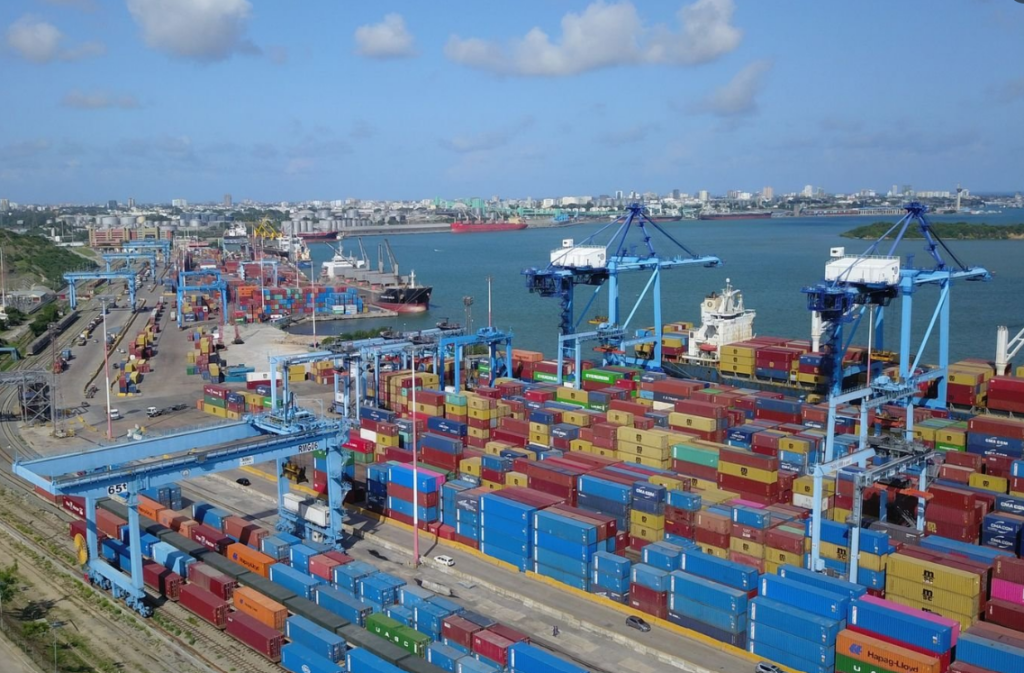- Legal ruling favors Kenya Ports Authority (KPA) and Kenya Revenue Authority (KRA), allowing clearance of Sh145 million consignment despite ownership objections.
- Dispute centered on transfer of property and risk to Dooba Enterprises Ltd, with objecting companies claiming previous ownership based on contractual agreements.
- Case highlights importance of clear contractual agreements, documentation, and effective dispute resolution mechanisms in international trade.
An array of goods valued at $1 million (KSh145 million) is set to be cleared from the Mombasa port after a legal battle between five companies and two key entities, the Kenya Ports Authority (KPA) and Kenya Revenue Authority (KRA). The consignment, held in four containers, faced opposition from the companies, including Ningbo Ningshing Trading Group Inc., Top Anchor Industries, Ningbo Jiaje Water-Meter Manufacture Co. Ltd Inc., Ningbo Texilong Pipe Industry Co. Ltd, and Quanzhou Datouyi Technology Co. Ltd.
However, Mombasa High Court judge Kizito Magare ruled in favor of KPA and KRA, stating that the objecting companies failed to demonstrate a legal or equitable interest in the proclaimed goods, which primarily belong to Dooba Enterprises Ltd. Despite claims by the objectors of being previous owners, the court found insufficient evidence to establish their current ownership of the goods.
According to Justice Magare, the proclaimed goods are rightfully owned by Dooba Enterprises Ltd, and the judgment debtor holds no interest in the cargo. The companies’ attempts to obtain an interim injunction to restrain Mupeki Hauliers Ltd, KRA, and KPA from clearing and transporting the goods were unsuccessful.
The objectors argued that property and risk in the goods had not transferred to Dooba Enterprises Ltd, as they had dispatched the goods based on individual contracts with the judgment debtor, pending payment. They contended that Mupeki Hauliers Ltd’s decision to proclaim the consignment for recovery of disputed sums was unlawful.
Judge rules in favour of Kenya Ports Authority
In response, Mupeki Hauliers Ltd and the government parastatals countered that the objectors failed to provide sufficient evidence to establish their ownership of the goods. Citing the Sale of Goods Act Chapter 31 of the Laws of Kenya, they emphasized that the seller reserves the right of disposal until goods are delivered and payment received.
While the objectors invoked constitutional rights to property ownership, the court ultimately ruled in favor of KPA and KRA, allowing the clearance of the consignment from the port. The legal dispute highlights the complexities of commercial transactions and the importance of clear contractual agreements in international trade.
The legal battle over the clearance of the consignment underscores the importance of due diligence and clarity in commercial transactions, particularly in international trade. Disputes arising from the sale of goods, especially when shipped via bills of lading, can involve complex legal principles and contractual interpretations.
In this case, the objecting companies sought to assert their rights as previous owners of the goods, arguing that property and risk had not transferred to Dooba Enterprises Ltd until full payment was received. However, the court’s ruling reaffirmed the legal framework governing contracts for the sale of goods and the rights of sellers to reserve disposal until delivery and payment.
The involvement of key stakeholders such as KPA and KRA highlights the broader implications of such disputes on port operations and revenue collection. Delays in clearing consignments not only impact businesses involved but also affect port efficiency and government revenue streams.
Furthermore, the judgment raises questions about the adequacy of documentation and evidence presented in disputes over ownership and contractual obligations. Clear and comprehensive contracts, supported by proper documentation, are essential to avoid ambiguity and potential disputes in commercial transactions.
Moving forward, stakeholders in international trade must prioritize transparency, adherence to contractual terms, and effective dispute resolution mechanisms. Collaborative efforts between businesses, government agencies, and legal experts can help streamline trade processes and mitigate the risk of conflicts that disrupt supply chains and economic activities.
Additionally, this case underscores the need for businesses to stay informed about relevant laws and regulations governing international trade, including provisions of the Sale of Goods Act and other applicable statutes. Adequate legal counsel and risk management strategies are crucial for navigating the complexities of global trade and minimizing exposure to disputes and liabilities.
Read also: Kenyan Farmers Receive $2M Boost from Africa Fertiliser Financing Mechanism
